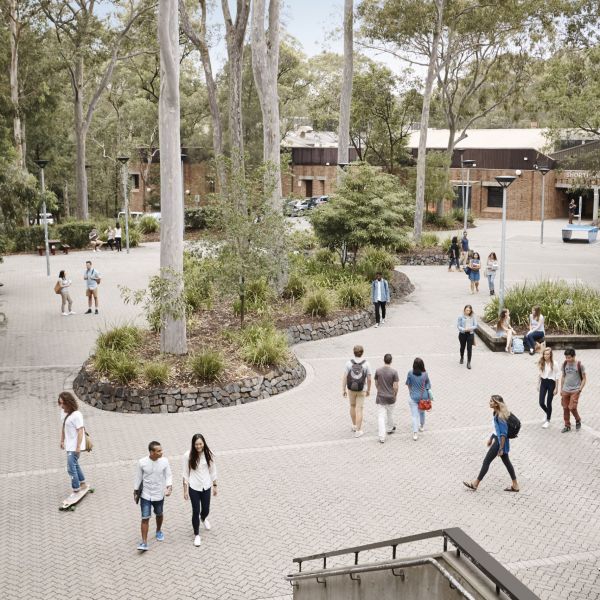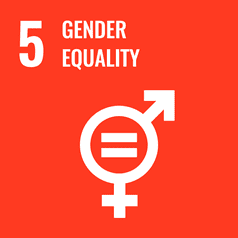An update on the University’s response to the National Student Safety Survey
The University has created an Action Plan for the Prevention of Sexual Assault and Sexual Harassment (SASH) at the University of Newcastle 2022 – 2025 in response to the 2021 National Student Safety Survey report.

In March of this year Universities Australia released the 2021 National Student Safety Survey (NSSS) report. The University’s response to the report included a recommitment to “ensuring a sensitive, coordinated and victim-survivor centric approach to preventing and managing incidents of sexual assault and sexual harassment.”
Over the past six months the University has been drafting the Action Plan for the Prevention of Sexual Assault and Sexual Harassment (SASH) at the University of Newcastle 2022 – 2025. This plan has been developed in consultation with students, including The University of Newcastle Students’ Association (UNSA), who submitted a formal report on 20 June 2022 - Recommendation & Response to Sexual Assault and Sexual Harassment at the University of Newcastle (report on behalf of 2022 UNSA SRC). Additional consultation has been undertaken with the Convenors of the SRC Student Collectives; students from key population and interest groups; and student and staff representatives from the Safe and Respectful Communities Advisory and Working Groups.
UNSA President, Jess Philbrook said, "UNSA is delighted to see progress being made with respect to protecting our students and wider University of Newcastle community. We maintain that any instance of SASH is entirely unacceptable, and we appreciate the work that the Pro Vice-Chancellor (Student Experience), the Respectful Communities Coordinator and other students and staff are doing to address this. Having already provided a comprehensive report with recommendations to the University, we are committed to continuing our collaboration, and platforming the student voice in important conversations such as these. This is just the start."
The Plan has also been developed in conjunction with sector benchmarking across Australian universities, as well as knowledge sharing with the Our Watch - Respect and Equality in Tertiary Education Community of Practice. This group is made up of over 80 Educating for Equality practitioners in universities across Australia and facilitated by leading national organisation Our Watch, an initiative under the National Plan to Reduce Violence against Women and their Children 2010-2022 (The National Plan).
Understanding the unique opportunities for tertiary education providers to promote gender equality and prevent violence, Our Watch has developed an evidence-based Educating for Equality Framework. This framework adopts a public health approach for preventing gender-based violence. This approach identifies three tiers of prevention – Tertiary, Secondary and Primary - and seeks to bring about change within and across structures, norms and practices which make up the University as an organisation and a community.
Drawing on this work over the past few months, the Action Plan has been developed based upon four key focus areas. These focus areas are:
- Awareness – engagement and communication
- Governance – policy & procedures, reporting, data management
- Response (Tertiary Prevention) - Security, safety, and support
- Prevention (Primary and Secondary) - Education, culture change, evaluation, and research
The Action Plan has been divided into short-, medium- and long-term goals to ensure changes are seen across the institution over time in the realms of knowledge, skills, behaviours, attitudes, and values. Achieving whole-of-university cultural change around the drivers of gender-based violence, sexual harassment and sexual assault will be the long-term goal of the primary prevention initiatives.
Sarah Williams, a University of Newcastle Law student and this year’s recipient of the Newcastle Business Club Youth Award, is also the founder of What Were You Wearing (WWYW), a community organisation by survivors for survivors, focused on providing awareness, education and advocacy against sexual assault. Of the University’s work in response to the NSSS Sarah said, "As soon as the results (of the NSSS) were released, I and the team at WWYW felt a dire need to work with the University of Newcastle on ending sexual violence on campus. The team at the University has been working hard for the past six months. In August WWYW held a stall on Autonomy Day, where we created a safe space for students and also educated students on consent, respectful relationships, and sexual health. We received great feedback from students, and we value and applaud the University for allowing our team to be involved."
Sarah also said, "Exciting details will soon be announced that we are in partnership with the University of Newcastle in establishing the first-ever Survivors Advocates Advisory group. This group will use their lived experience to work together to come up with ways to end sexual violence on campus. It is great to see the University wanting to work so closely with students as well as bringing Survivor Advocates into the forefront of our discussions".
Of the University’s work on the Action Plan, Pro Vice-Chancellor (Student Experience) and Academic Registrar, Professor Laura-Anne Bull said, “The University is committed to meaningful actions to prevent gender-based violence of all forms, including sexual violence. Sexual violence is a crime which can have long lasting impacts on victim-survivors and on entire communities. Significant recent research led by a University of Newcastle team from the Centre for Women’s Health Research and funded by ANROWS (Australia's National Research Organisation for Women's safety) revealed the extent to which this impact is experienced across the course of a woman’s life. Victims and survivors of sexual violence are up to 45 per cent more likely to have high levels of financial stress and report worse physical and mental health, including chronic conditions and mental health issues, than those who have not experienced sexual violence.
We also know that this is a crime that must be viewed through an intersectional lens, with young women, gender and sexuality diverse students, students with a disability and Aboriginal and Torres Strait Islander students overrepresented in the prevalence rates of sexual violence. These statistics are unacceptable, as is each and every instance of sexual assault and sexual harassment. Universities are uniquely located through a position of privilege within our community to lead change, through our research and through our culture. We will continue to work hard to drive the real change needed to prevent sexual assault and sexual harassment at our University.”
Ongoing engagement with our community – our students, our staff and the wider communities of which we are a part – will be critical to the success of this plan. If you have feedback or thoughts to offer about any element of our work in this area please reach out via email to respect@newcastle.edu.au
Timeline
- This plan was presented to the EC (Executive Committee) on 5 September, 2022 and the People and Culture Committee on 15 September, 2022 and was considered by Council on 30 September, 2022.
Completed
- Consent and active bystander messaging as part of the Autonomy Day communications plan
- Collaboration with What Were You Wearing activist group for the provision of a ‘safe space’, including consent resources on Autonomy Day
- Printed resource for Campus Care for frontline staff and first responders
In progress
- Creation and web publication of documentation on sexual misconduct process and how information is used in sexual misconduct cases – include information on academic standing.
- Ongoing Sex and Relationships education for residents living on campus.
- An audit of security and lighting in the library spaces.
- Implementation of the ‘Safer Library’ initiative.
- Scoping for an opportunity to pilot an online International Student Sexual Health module in partnership with NSW Health for implementation in Semester 1 2023.
- Development work on the proposal to change Orientation to Welcome Week for Semester 1 2023.
- Development work on an engagement and communications strategy.
- Engagement of an external reviewer for review of relevant policies and reporting options.
2023
2023 will see continued work on the development of a suite of prevention programs and other initiatives designed to prevent and respond to SASH. These will include additional training for frontline staff and student leaders, and ongoing review and enhancement of the governance, response and support offered for students and staff who experience sexual harassment and sexual assault.
Action Plan
- Action Plan for the Prevention of Sexual Assault and Sexual Harassment (SASH) at the University of Newcastle 2022 – 2025 (PDF, 562KB)
- Action Plan for the Prevention of Sexual Assault and Sexual Harassment (SASH) at the University of Newcastle 2022 – 2025 (MS Word, 72KB)
The website content for the Action Plan is being developed in a staged approach and alongside student feedback. A status update from our work in 2023 will be on our website by 16 February.
In the meantime, to provide you with an update today here are some of the actions either already completed or in progress:
- Additional resourcing for our Campus Care and Human Resources teams
- Scoping of enhancements to our incident reporting system
- Respect at Uni communication campaign
- Rollout of the updated Consent Matters 2.0 online learning module
- Development of Respect at Uni Peer Leadership program
- Consulted with Survivor Advocate Advisory Group, UNSA and our Student Feedback Community
- Review of our Sexual Harassment and Sexual Assault Prevention & Response Policy and Procedure
Contact
- Jayne McCartney - Respectful Communities Coordinator
- Phone: 49241011
- Email: Respect@newcastle.edu.au
Related news
- From Delhi to Newcastle, full tuition scholarship makes STEM dreams come true
- Full circle in STEM: Lara’s journey from student to mentor
- Exciting International Opportunities for Creative Industries Students coming this year
- Thousands flock to campus in anticipation of a new academic year
- Engineering Students Showcase Innovation at Final Year Project Event
The University of Newcastle acknowledges the traditional custodians of the lands within our footprint areas: Awabakal, Darkinjung, Biripai, Worimi, Wonnarua, and Eora Nations. We also pay respect to the wisdom of our Elders past and present.


